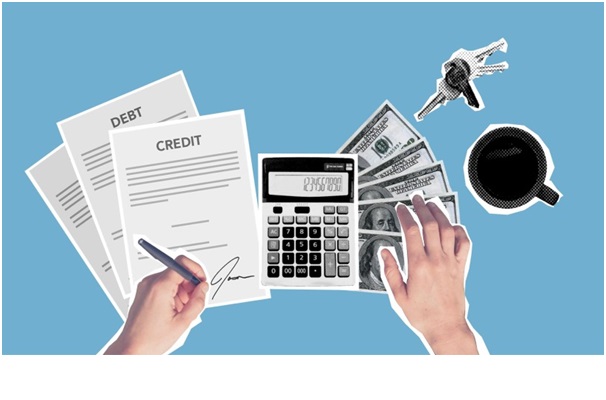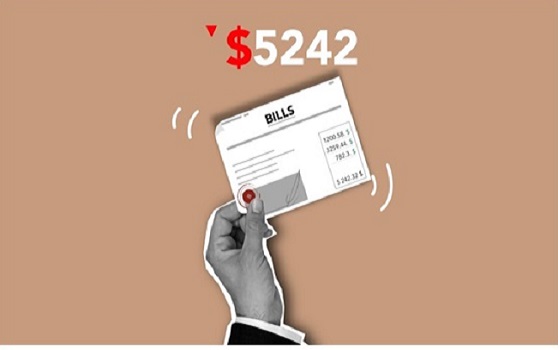After a stage in our lives, we all start thinking about our financial health and, we often wonder what our worth is in monetary terms. Net Worth is that tool, which helps us to know our current financial value. Here we shall be talking about how to calculate Net Worth of a person and its importance in his/her financial progress.
An individual can calculate his/her net worth by a very simple formula. Basically, it is the value of everything that you own minus everything that you owe. This figure can say enough about your current financial well-being. Do not confuse it with your Self-Worth, which is the value of beliefs and morals that your carry about yourself. Periodically monitoring and analyzing Net Worth, is a good systematic way to get a clear insight as to whether or not you are improving on your personal financial situation.
How to calculate Net Worth of a person?

Your net worth can be very simply calculated as the sum of all your assets (what you own) minus the sum of all your liabilities (what you owe). It is the total value you would have after paying all your debts and selling your assets. Depending on this calculation, you have either positive or, negative net worth.
Positive Net Worth – If you have more assets than your liabilities, then you have a positive net worth which means you are debt-free or you can pay off all your debts anytime.
Negative Net Worth – If you have more liabilities than your assets, then you have negative net worth which means your outstanding obligations are more than that are to be fulfilled, and this way it shows your weaker financial health.
Net Worth = (Assets) – (Liabilities)
Now, let’s look what do we consider as Assets and Liabilities –
Assets

Your assets are all the resources that add money to your pocket or have a monetary value. The more assets you have than liabilities, the stronger is your financial situation at that period of time.
Assets can be classified further as current assets, fixed assets, intangible assets, or tangible assets.
Some of the example of assets includes:
- Your Home
- Vehicles
- Investments
- Real Estate
- Inventory
- Jewelry, Furniture or, other collectibles
- Cash / Savings / Certificate of Deposites(CDs)
- Value in retirement accounts, etc.
Value of assets you own shall be regularly recalculated and analyzed as the net worth figure changes from time to time due to the appreciating or, depreciating nature of your large assets. For example, the value your land property holds today, may not be the same a month after. It may appreciate, or depreciate depending on various factors.
Liabilities

Your liabilities are all those financial obligations that you have to pay. Unlike assets, liabilities drain out money from your pocket.
These includes:
- Mortgages
- Personal loan
- Car loan
- Taxes owed
- Student loans
- Outstanding bills
- Credit cards
- Borrowed money, etc.
The total liability value is the sum of all these above debts. Often people have a negative net worth, this is mainly because of their mortgages, car loans, or maybe student loans. Hence from this, we can learn that we should pay more attention to prudent savings.
A major misconception while considering asset value is that sometimes people include their income in the net worth calculation. Your paycheck can be very big but at the same time, your net worth can be very weak, in case the amount you spend is large. Never include your income while calculating it.
The second misconception which needs to be drawn out is that big houses / fancy cars do not always mean high net worth. This is because when people talk about their assets, they never mention their liabilities publicly. Hence it is often difficult to know the exact value of their debts.
You can also read our related article – ‘The Accounting Game’ Book summary and its key lessons to know more about assets, liabilities, and other financial terms.
Importance of Net Worth

Now since we know enough about Net Worth calculation, let’s understand how it is important in our financial progress.
a. For Financial awareness
A person’s or entity’s net worth is the primary parameter to judge the financial value of that person or entity. Without understanding what net worth is, you shall never be able to find the difference between who is rich and who is poor.
b. For Financial planning
It can show you where you stand financially today which means you can plan your financial goals, where do you want to go and how will you reach there. This can give you a clear picture of all the assets you hold today with no loans, helping you in your financial planning.
c. For Wiser Financial decision
Imagine you are to get involved in some really big business dealings and you have a clear picture of the Net Worth, it is very likely that you would be making better financial decisions on your own that would help you to prevent your future losses and boost your profits.
d. For Financial stability

When you know the current position of your net worth, you will try to think in the direction of improving the figure and spending wisely so as to achieve your year-end financial targets. Tracking it regularly will lead you to financial stability.
e. For better understanding of loan impacts
Reviewing your assets and liabilities can help you to better understand the impact of the loan you are planning to take in the future. This has always been a dilemma for an average earner. Hence in such a situation, it is always suggested to crunch the numbers and see whether it make financial sense to take another loan when you already have a running loan.
Conclusion
In closing, we would say that a simple figure like Net Worth can be a wake-up call for you if you are not on track to financial security. However, it does not provide the profundity to fully evaluate your financial situation and wellbeing. A person with a lot of low-interest rate loans may be on a better financial side than a person with a high-interest rate credit card. Hence, you should try to focus on having more appreciating assets than having more money-draining liabilities.
So, what is your Net Worth? What are the actions you are taking to boost your financial health? Let us know in the comment section below. If you liked our article on “How to calculate Net Worth of a person”, then please do share it among your family, friends, and peers.



